#Driving
Disabling ABS to Drive in The Snow Is An 'Extremely Bad Idea'
Every other year or so, the same site/email/thread/rumor goes around:
“Did you know that your car’s ABS system actually makes driving in snow WORSE?! And the worser part is, you can’t even turn it off! Automakers and the government are the worstest!”
Except that’s not true.
An Unexpected Lesson: Making the Long Trip Home
In addition to advice about the long-term benefits of wearing sunscreen, the world’s most famous commencement address included this bit of wisdom: “The real troubles in your life are apt to be the things that never crossed your worried mind, the kind that blindside you at 4 p.m. on some idle Tuesday.” And so it was, true to the author of that essay’s own meandering experience, that I found myself on a sunny, if not entirely idle, afternoon this past June tossing a small rucksack into the back of my well-worn Shelby Charger setting out for Seattle, some 1800 miles away.
That my mother was ill was a fact I had long known. Just how serious the situation truly was, however, took everyone by surprise. One day the doctors were telling my brothers and sisters that our mother had as much as a year left to live and then, almost the next day, were coming back to say that she might have just a few weeks. By the time the news reached me in Leavenworth, the prognosis had been shortened to just days. After an hour or two of hand wringing, I decided I should probably go.
Cheap Gas, More Driving Leading To More Fatal Crashes
The number of fatal traffic crashes has risen 14 percent over last year, and deaths on the road could top 40,000 — the first time since 2007 — the National Safety Council is reporting (via Autoblog).
The council points to lower gas prices and a better economy as reasons why people are driving more and crashing more.
The estimated economic impact of the crashes through the first six months of 2015 was $125 billion according to the council, up 24 percent from last year.
QOTD: At What Age Should You Let Your Kid Drive?
Max Verstappen. He’s the youngest competitor to ever pilot a Formula 1 car around a track. At the age of 17, the young Dutchman would likely have a restricted driving licence in many countries. But, here he is, racing wheel to wheel with World Champions as he waves his FIA Super Licence in the air.
Sexist comments about women being too scared to drive in competitive racing aside, Verstappen has made a phenomenal debut in the top rung of motorsports. That should be expected. He’s been driving karts since the age of four and a half. He’s also likely been driving road cars long before he could do so legally, something a lot of us car folk probably have in common.
Chart Of The Day: Mass Transit Isn't Hitting Critical Mass
What's Wrong With This Picture? Exhaust Systems Can Be Such A Drag Edition
My daughter Tova usually rides to her job with a co-worker. She’d noticed the car they were using had been getting louder and already had mentioned to her friend that something might be amiss with the exhaust system. On the way to work today, it started to get even louder, and then there was a grinding noise. Tova suggested they stop and check things out, but the driver said it was “only a couple of miles” to the school where they teach, so they continued. Tova said that there was a banging noise and then most of the grinding seem to have stopped. Other drivers were honking and pointing.
Review: 2015 Honda Fit
There’s really no way to lead into this, so I’ll just come out and say it: the 2015 Honda Fit is a fantastic car. Around town, at speed on Southern California’s twisty canyon roads, on the highway, stuck in traffic- there wasn’t a single situation we put our EX and EX-L testers into that it didn’t handle with aplomb. Even some light off-roading didn’t twist up the Fit’s rigid frame.
Is Driving the New Smoking?
copyright Chris Bruntlett
I love to smoke. That’s not a cool thing to admit; in fact it’s socially irresponsible. But there is something very satisfying about lighting up, and the sensation of that first drag. For me it’s not about nicotine. No I enjoy the act of smoking. Fortunately I also love to run and the two habits are rarely complementary. Save the occasional relapse, I quit some 16 years ago. But if smokes were only as bad for me as coffee, I would still light up, social pressures be dammed.
Is America's Love Affair With The Car Over? Americans Driving Less
Is the American love affair with the automobile over? Total miles driven in the United States peaked in August of 2007, then dropped during the recession and has leveled off since then, though the economy is growing slightly and the population is increasing. According to the Detroit News, the Federal Highway Administration just reported that miles traveled during the first six months of 2013 continued the trend, being down slightly from 2012.
Individual miles traveled actually peaked in 2004, at about 900 miles per driver per month. By mid 2012, that had dropped to 820 miles per month. Per capita automobile use is now about where it was in the late 1990s. Until then, driving mileage generally tracked economic growth, according to U.S. Transportation Department economists Don Pickrell and David Pace ( PDF presentation here). Since the late 1990s, though, the when the economy has grown, it has grown more rapidly than car use.
Piston Slap: Limited Use but Unlimited Potential?
I own a Jaguar (Ford Era) that gets driven only about once a week, with jaunts of a few miles to several hundred. I keep syn oil in the engine. I have owned this car for several years and the only problem to date is the flat spotting of the tires. What should I do to keep this vehicle in good running condition? Is weekly driving enough?
San Francisco Begins Investigating Cost-Per-Mile Driving
The San Francisco Bay area will investigate a proposal to implement cost-per-mile driving, as a way to raise money for public transit and road repair while reducing pollution and congestion.
Generation Why: If You Are Under 25 Or An Idiot, Please Don't Buy A Scion FR-S Or Subaru BRZ
With the release of the SciBaru FRZ just weeks away, everyone’s been caught up in the sticker price, available options and aftermarket support for the car, but nobody has asked a crucial question; what about insurance?
The War On Drivers: "Car-To-X" Communication System Testing Begins
Fuel Economy: It's Your Problem Too
A University of Michigan study [ PDF] shows that, in the 85 years between 1923 and 2008, average on-road fuel economy in the US has improved a mere 3.5 MPG. In fact, the study shows that driving a car is even more energy-intensive (per occupant-mile) than flying on an airplane (3,501 BTU per mile versus 2,931 BTU per mile). Some will blame weak government regulations for this unimpressive result, but the study found that the convenient government scapegoat is not completely to blame.
This report presents information about the effects of decisions that a driver can make to influence on-road fuel economy of light-duty vehicles. These include strategic decisions (vehicle selection and maintenance), tactical decisions (route selection and vehicle load), and operational decisions (driver behavior).
The results indicate that vehicle selection has by far the most dominant effect: The best vehicle currently available for sale in the U.S. is nine times more fuel efficient than the worst vehicle. Nevertheless, the remaining factors that a driver has control over can contribute, in total, to about a 45% reduction in the on-road fuel economy per driver—a magnitude well worth emphasizing. Furthermore, increased efforts should also be directed at increasing vehicle occupancy, which has dropped by 30% from 1960. That drop, by itself, increased the energy intensity of driving per occupant by about 30%





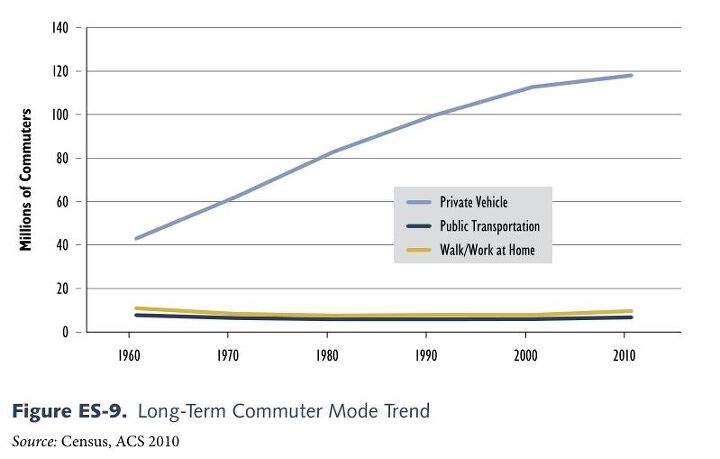


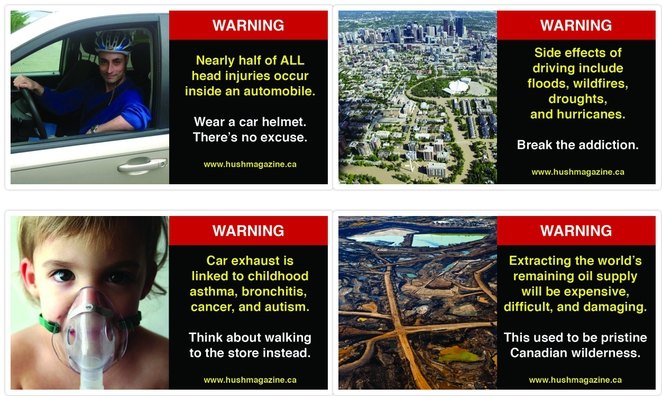
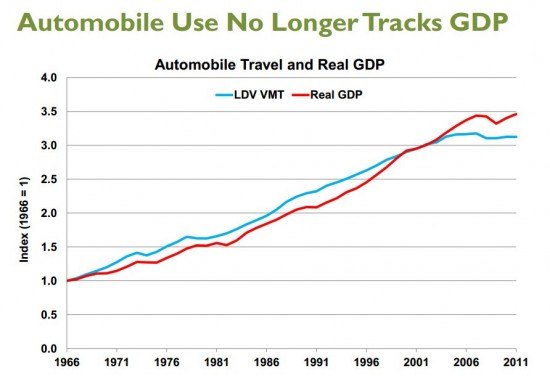


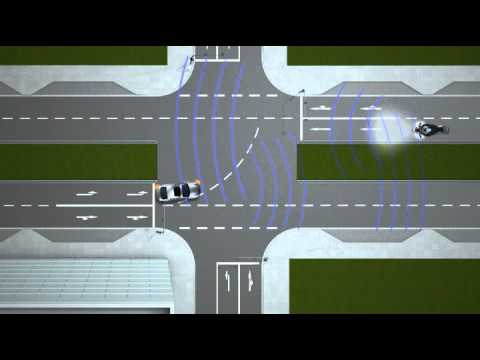
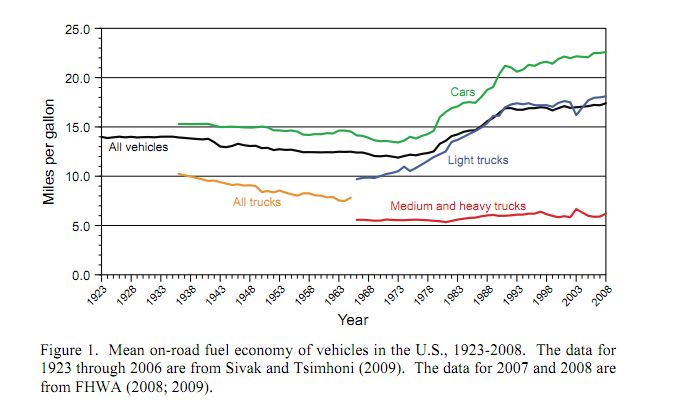












Recent Comments